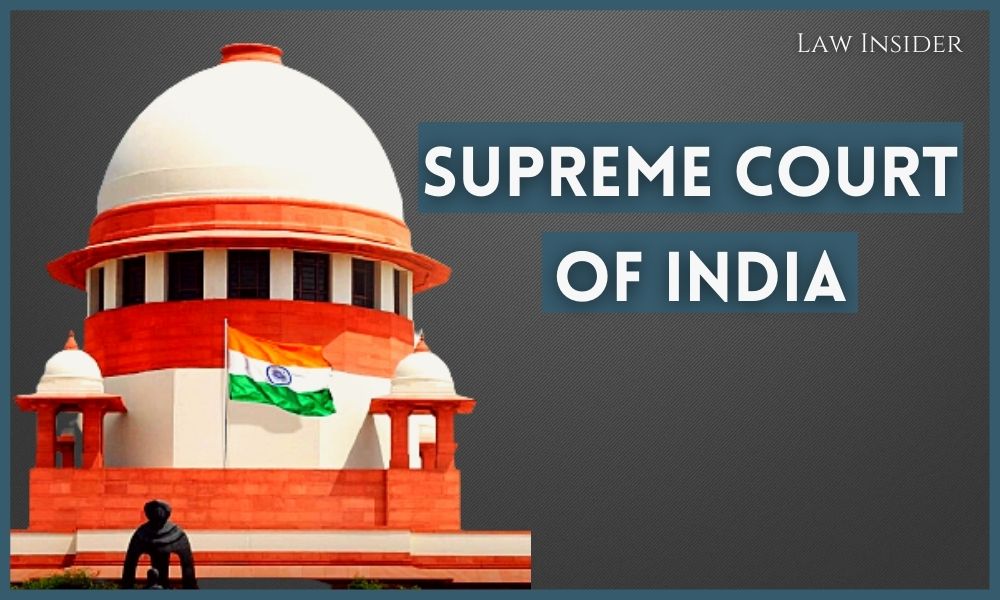Sakunjay Vyas
Published on: March 26, 2022 at 11:00 IST
The Supreme Court recently ruled that the Supreme Court will exercise its jurisdiction under Section 15Z of the SEBI Act only when a question of law arises.
The Two-Judge Bench of Justice L. Nageswara Rao and Justice Pamidighantam Sri Narasimha heard an appeal against the Securities Appellate Tribunal wherein the appeal against the order passed by the Securities Appellate Tribunal that had set aside the order passed by the Securities and Exchange Board of India restricting the respondent company from accessing the capital market for one year and further restraining the promoter directors from buying, selling or otherwise dealing with securities for India.
While dismissing the appeal, The Apex Court has explained the jurisdiction of the Supreme Court under Section 15Z.
The Apex Court had the following issues for consideration:
1. What is the scope and ambit of statutory appeal to the Supreme Court under Section 15Z of the Act against an order passed by the Securities Appellate Tribunal?
2. Whether the advertisements dated 07.04.2005 and 20.04.2005 violate Regulations 3 (a), (b), (c), (d) read with Regulation 4 (1), (2) (k), and (r) as amounting to misleading and defrauding the investors?
3. Whether the Company has violated Regulations 3(a), (b), (c) and (d) and Regulation 4(1), 4(2)(k) and 4(2) (r) of the SEBI (PFUTP) Regulations, 2003 by manipulating the share prices and accounts?
4. Whether there is a Right to cross-examine the author of a document if SEBI seeks to rely on that document which is against the interest of the company?
The Apex Court, while addressing the first issue that is the scope and ambit of statutory appeal to the Supreme Court under Section 15Z, stated that the Supreme Court can exercise its jurisdiction under section 15Z, where there is a question of law arising.
The question of law arises where there has been an error in interpreting or in the construction of legal provisions of the statute.
“The Supreme Court will exercise jurisdiction only when there is a question of law arising for consideration from the decision of the Tribunal… A question of law may arise when there is an erroneous construction of the legal provisions of the statute or the general principles of law.” the Court said.
The Apex Court further stated that every interpretation of the law could not amount to a question of law.
The Tribunal, as an appellate authority, can interpret rules, acts, and regulations, which systematically evolves the legal regime.
This principle is applied consistently for the structural evolution of the sectorial laws.
” Not every interpretation of the law would amount to a question of law warranting exercise of jurisdiction under Section 15Z. The Tribunal while exercising jurisdiction under Section 15T, apart from acting as an appellate authority on fact, also interprets the Act, Rules and Regulations made there-under and systematically evolves a legal regime. These very principles are applied consistently for structural evolution of the sectorial laws.” the Court said.
The Apex Court, while considering the rest of the three issues in hand, stated that the Tribunal has arrived at its conclusions based on independent facts concerning (a) the allegations under Regulation 4 relating to the issuance of misleading advertisements dated 07.04.2005 and 20.04.2005 as well as (b) allegations relating to manipulation of scrip prices and profits to lure investors.
Furthermore, since these issues have been decided based on facts and documents in the record, no question of law arises; therefore, the Supreme Court cannot interfere under the ambit and scope of section 15Z of the SEBI Act.
The Apex Court set aside the finding of the Tribunal that there is a right of cross-examination in all cases and would leave the question of law relating to the right of cross-examination open and to be decided in an appropriate case by this Court.
As a result, the Apex Court dismissed the Civil Appeal against the judgment of the Securities Appellate Tribunal by stating that the general observations of the Tribunal that there is a right of cross-examination is hereby set aside
Also read:
Difference between Acts, Rules and Regulations
Appellate Jurisdiction of Supreme Court in Criminal matters
Jurisdiction of Courts: Where can you file a suit?

